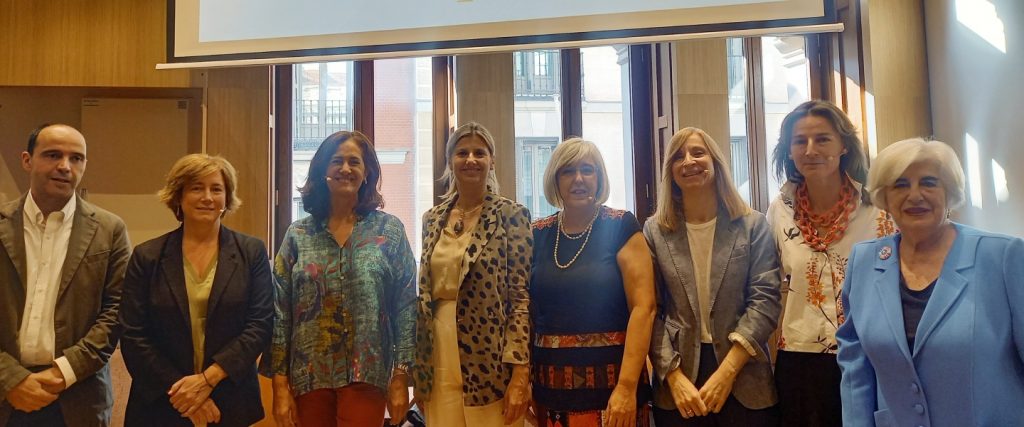
This past June, six civil society organisations – the European Association for Digital Transition, EADT, promoter of the initiative, plus UNICEF, Save the Children, Dale una vuelta, iCMedia and the Fundación Anar – presented, with institutional support from the Spanish Data Protection Agency (AEPD), a proposal for a state pact to protect minors in the digital world.
The agreement, consisting of fifteen measures, is in response to phenomena such as cyberbullying, access to inappropriate content, especially pornographic, the impact on mental health from exposure to social networks or the commodification of children and adolescents’ data, in detriment to their privacy. It was presented publicly at the Ateneo de Madrid, and since then a period opened up to find support from all types of civil society organisations and associations, with excellent results: more than 130 entities have signed the pact.
The initiative was situated within a very specific moment in the political situation in Spain: the pre-campaign for a general election that would lead to a new legislature. Four months later, and after a very tight electoral result, there is still no certainty that the new Parliament will get up and running and, consequently, develop its regulatory capacity. Meanwhile, social organisations continue to work to try to combat these problems, looking for alliances and solutions to enormously complex phenomena.
The roundtable “We need children to have a healthier digital life: The role of foundations”, which the EADT organised on October 6th, was framed within this context.
The event was presented by Francisca Sauquillo, president of the civil rights section of the Ateneo de Madrid, and moderated by journalist Tomás López Morales, who was joined by Ana Caballero, vice president of the European Association for Digital Transition; Beatriz Martín Padura, general director of Fundación FAD Juventud; Luisa Alli, general secretary of the Fundación Instituto Hermes; Susana Gato, deputy director of the Fundación Atresmedia; María Luisa Soleto, director of the Fundación Mujeres, and Isabel Peñalosa, director of Institutional Relations at the Asociación Española de Fundaciones.
The speakers agreed on the importance of acting on several fronts; the political and regulatory is just one more. But while Martín Padura emphasised the importance of teachers and especially parents guiding the online behaviour of children and adolescents, avoiding “adult-centric” approaches, other speakers, such as Caballero, emphasised the need to hold accountable the companies that provide content and services online.
Along these lines, Alli, from the Instituto Hermes, underscored a more geopolitical reading of digitalisation: “It’s not that Europe is lagging behind, but rather it is trying to build a different model, facing a jungle in which economic benefit comes before citizens’ rights”, she said.
A problem that is not about social class
For her part, Isabel Peñalosa, with the overall perspective that comes from having in depth knowledge of the work of the vast majority of foundations, pointed out a peculiarity of digitalisation: many of its potential problems are not about social class and affect families that are far from being socially excluded. This is the case, for example, of cyberbullying or the dissemination of hate speech and disinformation campaigns.
Disinformation and the need for media training that allows children and adolescents to distinguish hoaxes is precisely the field of work of the Fundación Atresmedia, whose representative, Susana Gato, explained the need to put the magnitude of the problem more on the public agenda. This is because without social demand there will be no political and regulatory measures to deal with the problem. “Everyone has to do their part. But as a society we have to increase the pressure on the agents who have to legislate, because we can lose a generation”, said Marisa Soleto of the Fundación Mujeres.
Among the attendees were two MPs specializing in digitalisation, Juan Luis Pedreño from the Popular Party and Tesh Sidi from Sumar, who took the floor briefly at the end of the event. Sidi put the emphasis on regulating digitalisation “based on transversality”, also taking into account the humanist approach. For his part, Pedreño called for collaboration from social organisations, starting from the proposal in the state pact, to regulate specific aspects in detail, such as verification of age or how to deal with the impact of porn on minors.



